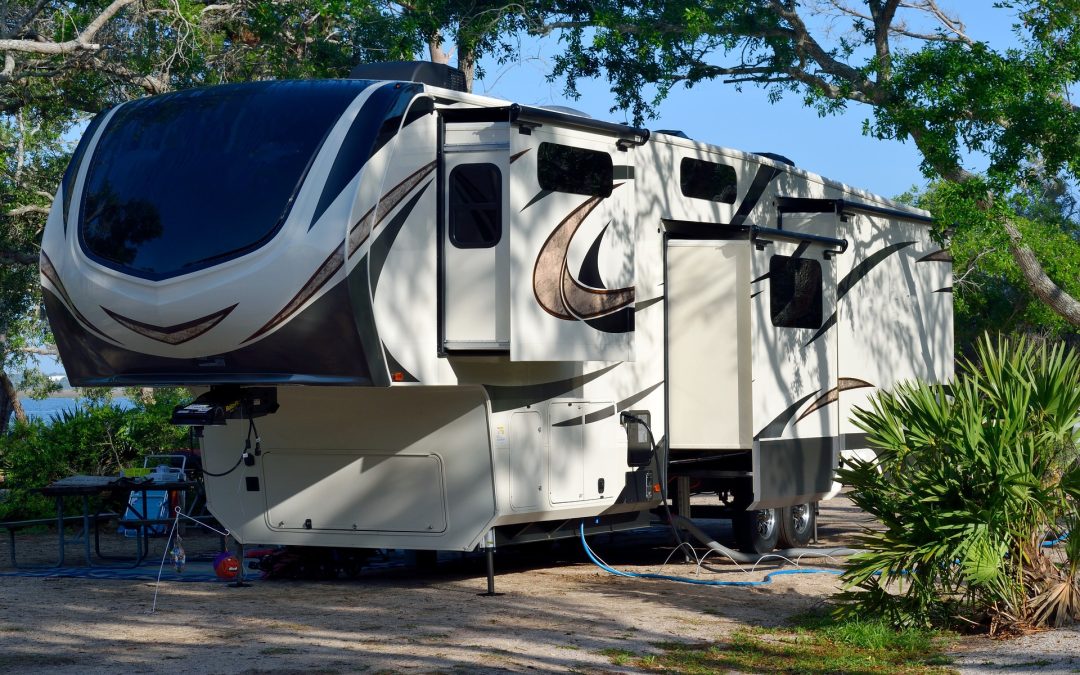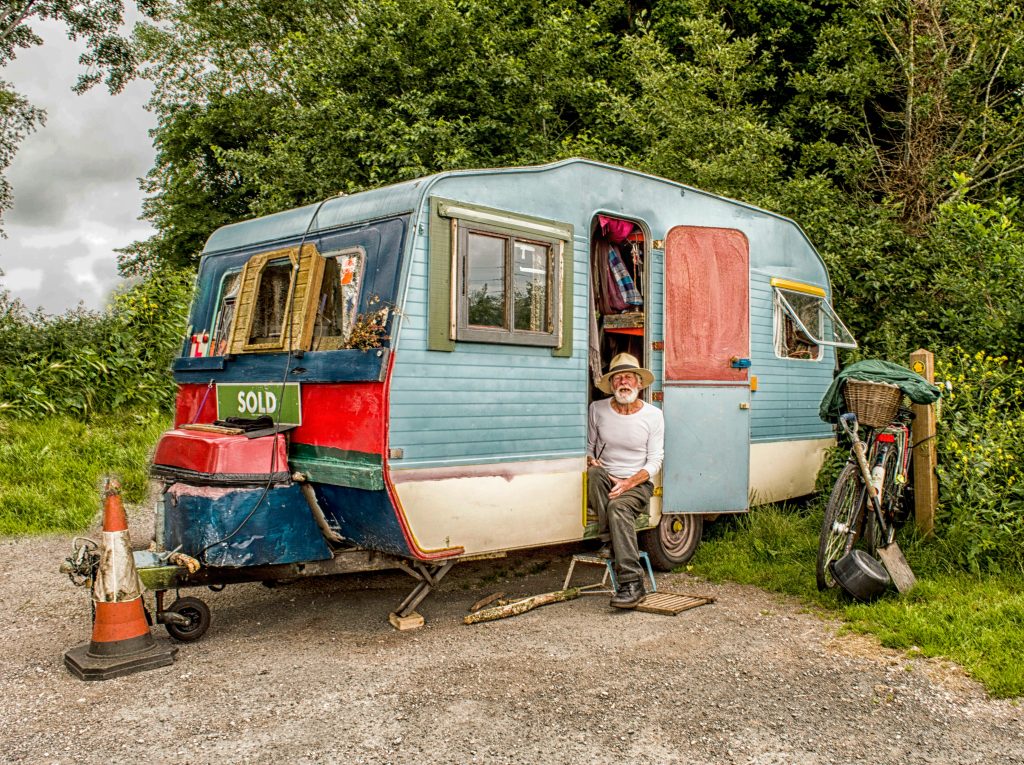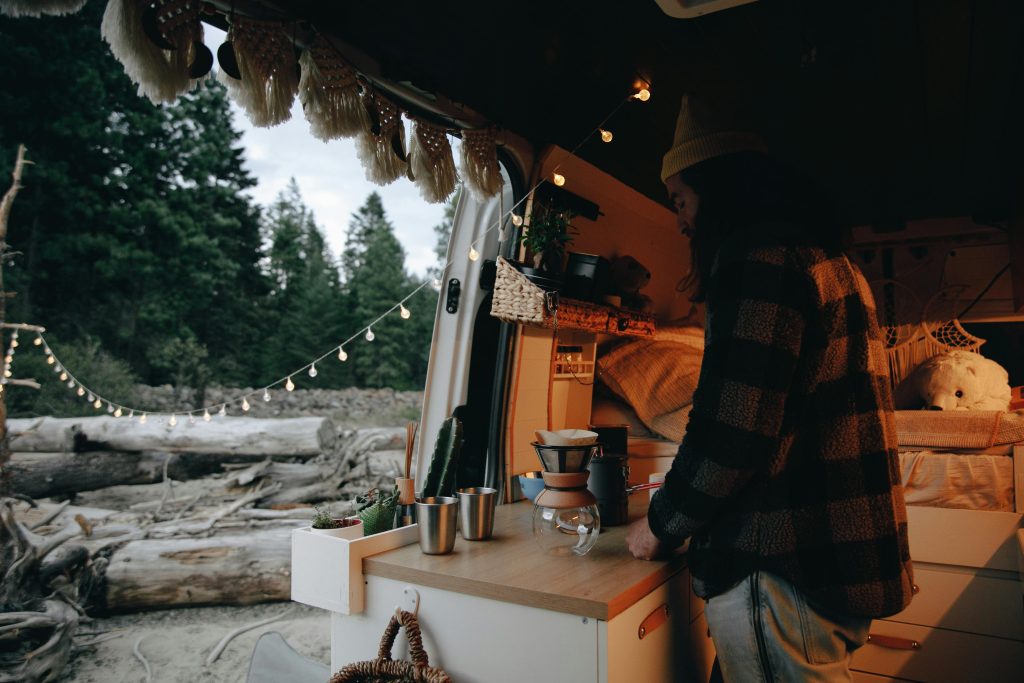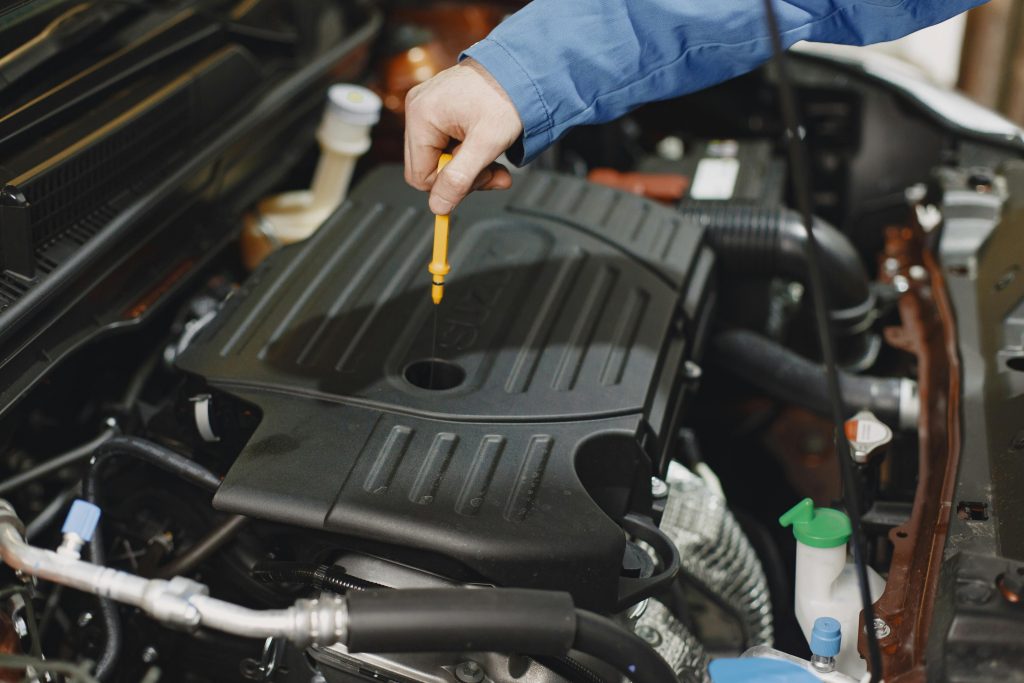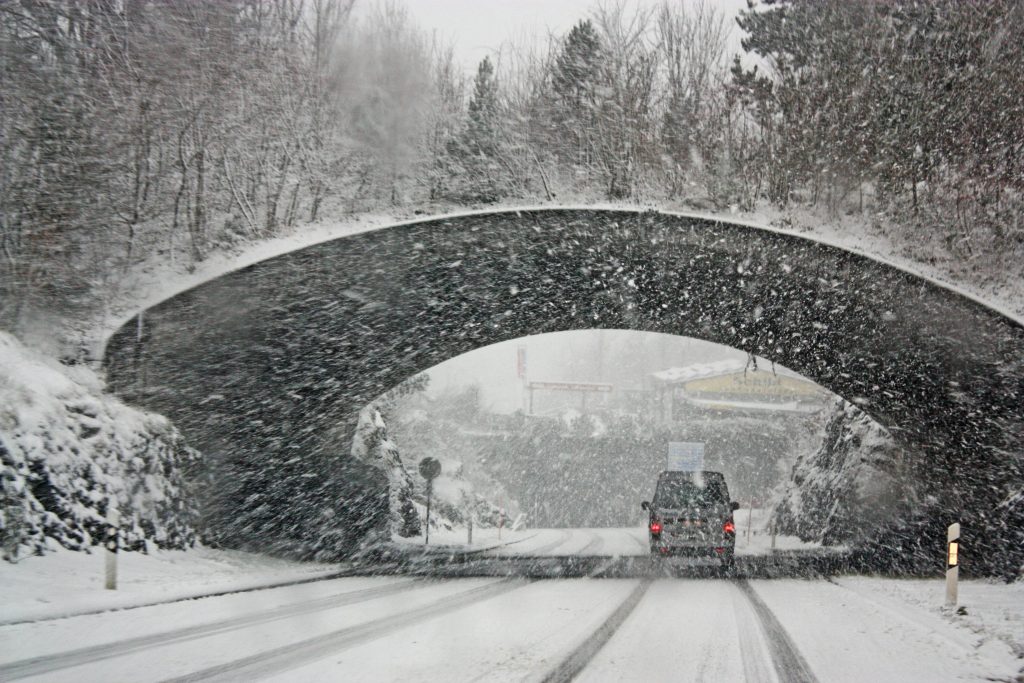Maintenance, Safety & the Perfect Campsite
The open road beckons, promising adventure and escape. For many, RV camping offers the ultimate way to explore the wonders of nature, combining the comforts of home with the thrill of the unknown. But before you hit the gas, a little planning goes a long way in ensuring a smooth, enjoyable, and unforgettable trip. This comprehensive guide equips you with the knowledge to tackle three crucial aspects of RV camping: finding the perfect campsite, keeping your RV in top shape, and prioritizing safety for a worry-free experience.
Photo by neil kelly
Finding Your Ideal Campsite
The first step to a fantastic RV adventure is choosing the perfect campsite, a place that caters to your preferences and transforms your camping dreams into reality. Here’s a breakdown of key factors to consider:
Unveiling Your Camping Preferences:
- Nature’s Playground: Do you crave the majestic rise of snow-capped mountains, the whispering serenity of a pine forest, or the tranquil lull of a lakeside view? Let your desired landscape guide your campsite selection. Imagine waking up to a breathtaking sunrise over a mountain vista, the invigorating scent of pine filling your senses, or the gentle sound of lapping water lulling you to sleep.
- Convenience vs. Solitude: Consider your comfort level. Some campers enjoy the ease of having well-maintained restrooms, hot showers, and camp stores nearby, perfect for grabbing last-minute supplies or enjoying a delicious camp meal without the hassle of cooking. Others, however, prefer the peace and quiet of remote locations, seeking a deeper connection with nature and a chance to truly unplug from the daily grind.
- Sprawling Oasis or Cozy Nook: Think about the ideal amount of space for your RV and how much privacy you desire. Do you envision a spacious campsite where you can spread out, relax under an awning, and enjoy outdoor games with family? Or perhaps a more intimate setting nestled amongst trees, offering a sense of seclusion and a chance to commune with nature on a deeper level? Choose a campsite that caters to your vision of the perfect RV getaway.
Locating Campsites: A Multi-Faceted Approach
- Online Directories: Your Gateway to Endless Options: Numerous websites like Recreation.gov, Reserve America, and Campendium offer extensive listings of campgrounds across the country. These resources provide detailed descriptions of amenities and facilities, allowing you to compare and choose campsites that best suit your needs. Imagine filtering your search results to find a campsite with full hookups (water, electricity, and sewer), laundry facilities, and even a swimming pool for a luxurious camping experience!
- Mobile Apps: Scouting on the Go: Leverage the convenience of apps to find campsites on the go, perfect for last-minute adventures or detours.
- Boondocking Gems: For those seeking free or low-cost, off-the-grid experiences, apps like iOverlander and FreeRoam cater specifically to dispersed camping opportunities, allowing you to camp on public lands away from established campgrounds. Imagine waking up to a breathtaking vista with no campground fees – pure bliss for budget-minded adventurers!
- General Camping Apps: Apps like Allstays, The Dyrt, and Hipcamp offer a wider range of options, including established campgrounds with various amenities, state and national park campgrounds nestled amidst stunning natural landscapes, and dispersed camping areas for those seeking a more rustic experience.
Beyond the Digital Realm: Unearthing Hidden Gems
- Engaging with Local Knowledge: Don’t underestimate the power of local insights! Online forums or communities specific to your destination area can be a treasure trove of information. Talking to locals or park rangers can also unveil hidden gems and lesser-known campsites that may not be prominently listed online. Imagine discovering a secluded campsite by a hidden waterfall, recommended by a friendly park ranger – a unique experience you might miss with just a web search.
Evaluating Campsite Suitability
Now that you’ve identified potential campsites, it’s time to ensure they meet your practical needs and safety considerations:
- Access Made Easy: Ensure the campsite’s terrain and access roads are suitable for your RV’s size and maneuverability. Imagine the frustration of arriving at a dream location only to find the access road too narrow or the terrain too steep for your RV. A little research beforehand can prevent such mishaps.
- Safety First: Be mindful of potential hazards like low-hanging branches, uneven terrain, or areas prone to flooding. Research any known safety concerns in the area before booking. Nobody wants their camping trip interrupted by a fallen branch or a flash flood. Choosing a safe campsite allows you to relax and truly enjoy your surroundings.
Photo by PNW Production
Availability of Nearby Resources
-
Hookups or None?: Consider the importance of access to water, electricity, and waste disposal facilities. Choose a campsite that aligns with your needs and RV setup.
- Full Hookups for Convenience: If you crave the comforts of home, opting for a campsite with full hookups (water, electricity, and sewer) allows you to run all your RV’s appliances and enjoy amenities like air conditioning and heating. Imagine enjoying a hot shower or whipping up a delicious meal in your RV’s kitchen without having to worry about managing water tanks or waste disposal.
- Partial Hookups or Dry Camping: For a more rustic experience, some campsites offer partial hookups (water and electricity) or no hookups at all (dry camping). This necessitates being more self-sufficient with your water usage and managing your RV’s waste tanks. However, dry camping often comes with the benefit of lower fees and a more secluded location, allowing you to truly immerse yourself in nature.
-
Beyond the Basics: Some campgrounds offer additional amenities that can enhance your camping experience. Look for features like laundry facilities, camp stores, swimming pools, or even recreation areas with hiking trails or playgrounds, depending on your preferences. Imagine enjoying a refreshing swim in a pool after a day of exploring, or stocking up on essentials at a nearby camp store – these amenities can add a layer of convenience and enjoyment to your trip.
Minimizing Environmental Impact
- Respecting the Outdoors: As responsible campers, it’s crucial to minimize our environmental impact and adhere to Leave No Trace principles. Look for campsites with established fire rings to minimize your footprint and avoid creating new fire pits. Imagine leaving the campsite just as beautiful as you found it, preserving the natural environment for future generations of campers.
- Leave No Trace: Familiarize yourself with the seven Leave No Trace principles, which include planning ahead and disposing of waste properly. By following these guidelines, we can ensure that our camping activities have minimal impact on the natural world.
By following these comprehensive tips and considerations, you can transform your campsite search from a daunting task to an exciting adventure in itself. The perfect campsite awaits, ready to become the backdrop for your unforgettable RV camping experience!
Photo by Gustavo Fring
RV Maintenance and Upkeep
A well-maintained RV is like a trusty travel companion – it gets you there safely and comfortably, allowing you to focus on creating lasting memories. Here’s a comprehensive guide to keeping your RV in top shape, ensuring a smooth and enjoyable camping trip:
Consistent Inspection and Maintenance
- Tire Care: Your Essential Connection to the Road: Tires are the only parts of your RV that directly touch the road, making them critical for safety. Regularly check tire pressure and tread wear before each trip. Uneven tread wear or improper inflation can significantly impact handling and fuel efficiency. Don’t forget to inspect the spare tire as well – you never know when you might need it!
- Suspension Savvy: The suspension system absorbs bumps and ensures a smooth ride. During your routine inspections, pay attention to the suspension components for signs of wear and tear, such as loose bolts, leaking shocks, or cracked bushings. A well-maintained suspension not only improves comfort but also contributes to overall safety.
- Engine and Fluids: The Lifeblood of Your RV: Just like your car, your RV’s engine relies on clean oil, coolant, and other fluids to function properly. Routinely check and change these fluids according to your RV’s maintenance schedule, typically found in the owner’s manual. Following the recommended maintenance intervals helps prevent breakdowns and extends the life of your engine.
- Braking System: Confidence in Every Stop: The braking system is paramount for safety. Inspect brake pads, rotors, and brake fluid regularly. Worn-out brake pads or low brake fluid can significantly increase stopping distances, posing a safety hazard. Ensure all lights, including headlights, taillights, and turn signals, are functioning properly. Being visible on the road, especially at night or during bad weather, is crucial for safe driving.
- Appliance Checkup: Keeping Your Comforts Running Smoothly: Test appliances like the refrigerator, air conditioner, and water heater before your trip to ensure they are operating efficiently. A malfunctioning refrigerator can spoil your food supply, while a faulty air conditioner can make those hot summer days unbearable. Catching minor issues early on can prevent major headaches down the road.
Preventing Problems Before They Arise
- Organized Storage is Key: Invest in storage solutions specifically designed for RVs. Securely storing your belongings prevents them from shifting during travel, potentially causing damage to cabinets or injuring passengers.
- Weatherproofing Your RV: Mother Nature can be unpredictable. Use RV covers to shield your vehicle from harsh weather conditions like rain, snow, and UV rays. This helps protect the exterior paint and seals from deterioration. Seal potential entry points around windows, doors, and other openings to deter pests like insects and rodents from making your RV their unwanted home.
- Seasonal Care: Preparing for Every Adventure: As the seasons change, so should your RV maintenance routine. Winterize your water lines to prevent freezing pipes during cold weather. Inspect seals around windows, doors, and compartments for cracks or leaks that could allow moisture intrusion. Before storing your RV for extended periods, check battery health and take steps to maintain its charge. A little seasonal TLC goes a long way in ensuring your RV is ready for your next adventure.
By following these essential maintenance tips and establishing a regular inspection routine, you can ensure your RV is reliable and ready to hit the road. This translates to peace of mind on your camping trip, allowing you to focus on creating unforgettable memories with your loved ones.
Photo by Magda Ehlers
Safety Measures and Emergency Readiness
Safety should always be your top priority on an RV camping trip. By taking a few precautionary steps and being prepared for emergencies, you can ensure a stress-free and enjoyable experience.
Essential Safety Features for Your RV
- Safeguarding Against Smoke and Carbon Monoxide: Install carbon monoxide and smoke alarms in your RV. Test them regularly according to the manufacturer’s instructions. Early detection of smoke or carbon monoxide can prevent serious hazards.
- Fire Extinguishers: Be Ready to React: Keep readily accessible fire extinguishers in your RV. Ensure they are up-to-date and in working order. Knowing how to use a fire extinguisher properly can be critical in an emergency.
- First-Aid Kit: Prepared for Minor Mishaps: Maintain a well-stocked first-aid kit containing essential supplies like bandages, antiseptic wipes, pain relievers, and any necessary prescription medications. Being prepared for minor injuries can prevent them from escalating into bigger problems.
Driving Securely: Arriving Safe and Sound
- Weight Distribution: The Key to Stability: Ensure your RV’s weight is evenly distributed across the axles. Consult your owner’s manual for recommended weight limits and proper loading techniques. Uneven weight distribution can affect handling and increase the risk of accidents.
- Adjusting to the Road Conditions: Always adapt your driving to the weather conditions. Slow down in rain, snow, or high winds. Be extra cautious on unfamiliar roads or mountainous terrain. Putting safety first is paramount.
- Combating Driver Fatigue: Plan regular breaks to avoid fatigue behind the wheel. Take turns driving whenever possible. A well-rested driver is a safe driver.
Preparing for Emergencies
- Crafting an Emergency Plan: Develop a plan outlining steps to take in case of emergencies, such as mechanical breakdowns, medical issues, or severe weather events. Include protocols for contacting help and evacuation procedures. Having a plan can help you stay calm and take decisive action in an emergency.
- Stocking Up on Essentials: Store essential supplies in your RV to sustain you in case of unexpected situations. This should include a non-perishable food and water supply to last several days, any necessary medications, and a toolkit with essential tools for minor repairs. Being prepared can make a big difference in an emergency situation.
Devices for Communication and Navigation
- Mobile Phone and Charger: Carry a fully charged mobile phone and a portable charger. This ensures you have a reliable means of communication in case of emergencies, even in areas with limited cell service.
- Two-Way Radios: Enhancing Communication in Remote Areas: Invest in two-way radios, especially if you plan on traveling to remote locations. They can be a lifesaver for maintaining communication with your travel companions, especially if cell service is unavailable.
- GPS Navigation Tools: Your Guiding Star: Utilize GPS devices or navigation apps to assist with route planning and provide guidance in unfamiliar territories. Having a reliable navigation system can help you avoid getting lost and ensure you reach your destination safely.
The Key to a Successful RV Camping Trip
By following the steps outlined in this comprehensive guide, you can ensure your RV camping trip is not only enjoyable but also safe and well-prepared for any situation. Remember, meticulous planning and prioritizing safety are the cornerstones of a successful RV camping adventure. With the right preparation and knowledge, you can embark on your journey with confidence, creating unforgettable memories that will last a lifetime.
Resources
- Recreation.gov – https://www.recreation.gov/ Recreation.gov is a comprehensive resource for discovering and booking activities, campsites, and lodging across the United States. Managed by the federal government, this website provides detailed information on national parks, forests, and other public lands.
- Reserve America – https://www.reserveamerica.com/ Reserve America is a popular online platform that allows users to search and reserve campsites, RV parks, and cabins throughout North America. The website offers extensive listings, including photos, descriptions, and reviews, making it a valuable resource for campers.
- Campendium – https://www.campendium.com/ Campendium is a user-friendly website that provides campers with comprehensive information on campgrounds, RV parks, and free camping sites. The platform offers reviews, photos, and essential details such as cell coverage and GPS coordinates to help users make informed decisions.
- Leave No Trace Center for Outdoor Ethics – https://lnt.org/ The Leave No Trace Center for Outdoor Ethics is a nonprofit organization dedicated to promoting responsible outdoor recreation through education and advocacy. Their website provides valuable information and guidelines on how to minimize environmental impact while camping and enjoying the outdoors.
- RV Safety & Education Foundation – https://www.rvsafety.com/ The RV Safety & Education Foundation is a nonprofit organization committed to providing RV owners with essential safety information, resources, and education. Their website offers articles, videos, and courses on a variety of topics, including RV maintenance, driving tips, and emergency preparedness.

